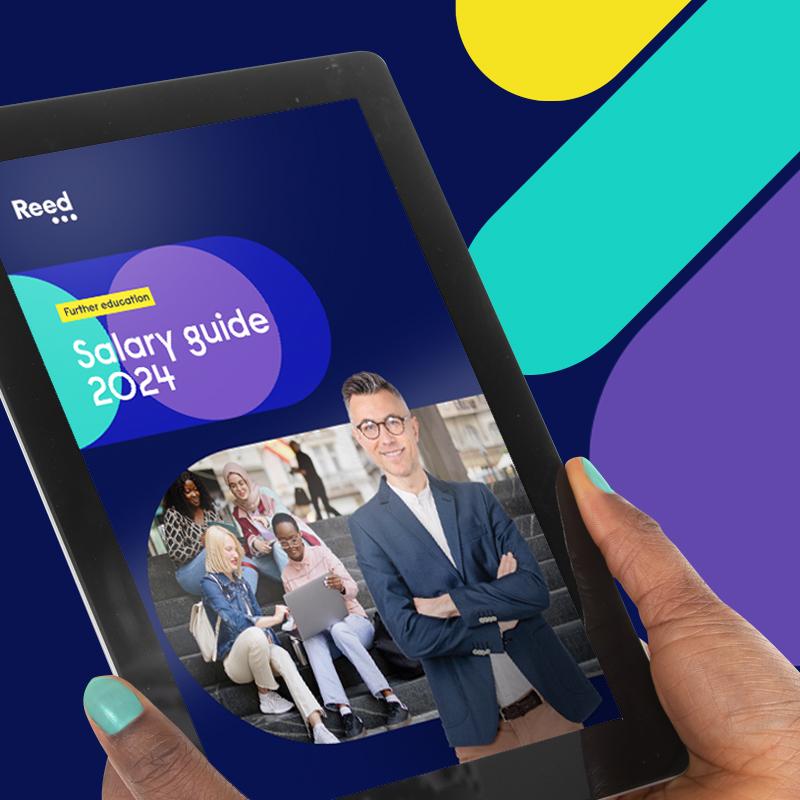There are plenty of rewarding careers in further education (FE), where professionals help inspire the next generation of leaders, workers and creative thinkers. For those looking to pass on their knowledge and experience in specific subjects, becoming a college lecturer may provide the platform to do so.
But how do you become a college lecturer? What qualifications do you need? And what are the benefits and challenges of being a college lecturer? In this article, we highlight how to become a college lecturer in the UK and what you can expect from the role.
What is a college lecturer?
A college lecturer is a teacher who works in further education colleges, teaching academic or vocational subjects to students aged 16 and over. FE colleges offer a range of courses that can lead to qualifications such as A-levels, BTECs, NVQs, apprenticeships, and access courses.
For those looking to branch out, lecturers can also work with adult learners, providing them with skills and qualifications for personal or professional development when looking to change career or learn a new skill.
As a lecturer, you'll teach a range of subjects in one of three main areas:
Vocational training (including apprenticeships) - preparing students for work and making sure they have up-to-date skills
Academic teaching - teaching a range of academic qualifications, mainly at GCSE and A-level
English and maths - teaching basic skills in areas such as numeracy and literacy.
Although you'll work mainly with post-16 and/or adult learners, you're increasingly expected to work with students aged 14 to 19 who are studying vocational subjects.
Types of college lecturers
They say no two days are the same in teaching, and the roles associated with the profession follow a similar path. There are different types of college lecturers, depending on the level and the subject they teach. Some of the most common types are:
A-level lecturers
These professionals primarily teach A-level courses, which are academic qualifications that prepare students for university or higher education. They usually have a degree in the subject they teach, and may also have a postgraduate certificate in education (PGCE) or other teaching qualifications.
BTEC lecturers
Here, teachers focus on BTEC courses, which are vocational qualifications that prepare students for work or further study. BTEC teachers will usually have a level 3 qualification or higher in the subject they teach, and may also have a teaching qualification or a level 5 FE teaching apprenticeship.
NVQ lecturers
The ideal career choice for those teachers who specialise in NVQ courses, which are vocational qualifications that assess the skills and competence of students in a specific occupation. NVQ teachers may have a level 3 qualification or higher in the subject they teach, and may also have a teaching qualification.
Apprenticeship lecturers
More common now given the plethora of pathways available to students, these teachers look after apprenticeship courses, which are work-based learning programmes that combine practical training with academic study.
Access lecturers
Those who teach access courses, which are pre-university courses that help students who do not have the traditional qualifications to enter higher education. They may have a degree in the subject they teach, and may also have a PGCE or other teaching qualifications.
Adult learning lecturers
These are teachers who specialise in adult learning courses, which are courses that help adults improve their basic skills, such as English, maths, and IT, or learn new skills for personal or professional development.
Types of further education work settings
With a career in FE, you could work in any of the following settings or institutions:
a general or specialist FE college
sixth form colleges
adult and community education centres
universities
prisons and youth offender organisations
voluntary and charity organisations
work-based learning.
What do you need to become a college lecturer
To become a college lecturer in further education, you will need to have skills, knowledge, and experience in the subject you want to teach, as well as a teaching qualification or a willingness to work towards one. Qualifications are available at various levels, including:
Level 3 Award in Education and Training - an introductory, knowledge-based course, which doesn't have a placement, although you will have to take part in microteaching
Level 4 Certificate in Education and Training - develops practical teaching skills and requires you to have at least 30 hours of teaching practice
Level 5 Diploma in Education and Training (DET) - this is the recognised full teaching qualification for the sector, and you must have at least 100 hours of teaching practice
Level 5 integrated specialist diplomas - similar to the equivalent Level 5 DET, including a specialist pathway, but all 100 hours of practice must be in your chosen specialist area.
Qualifications are generally offered by FE colleges, universities and other training providers on a full- or part-time basis. However, for part-time level 4 and 5 qualifications, you'll usually need to organise your own teaching practice placement.
In addition to qualifications, you will also need to have skills such as communication, organisation, creativity, and adaptability, as well as a passion for teaching and learning.
College lecturer role and responsibilities
Teaching in further education constantly changes, as new subjects emerge and new qualifications are brought into the curriculum. Being a college lecturer may differ from setting to setting, but some of the roles and responsibilities may include:
Teaching groups of students in a lecture, seminar or classroom setting
Writing lesson plans and schemes of work
Continual assessment and monitoring of student’s work
Preparing resources and materials for sessions
Providing pastoral support for students via one-to-one sessions and on an ad hoc basis
Being the public face of the organisation at open days and parents’ evenings
Interviewing and inducting new students
Researching and maintaining knowledge of educational policy, learning theory and subject-specific developments
Overseeing assessment activities and exams
Partaking in ongoing course evaluation exercises.
Working hours
Typical working hours for full-time college teachers are 35 hours a week, sometimes including one or more evening sessions when required. Some extra hours will be needed to plan and prepare lessons, mark students' work and attend meetings and open evenings, especially during term time.
College lecturer salary
As an entry-level FE teacher, you could expect to earn between £24,500 and £28,000, while an experienced FE lecturer can earn between £30,000 and £36,000.
Salaries at advanced teaching and training levels can range between £39,000 to £45,000. When looking to progress up the ladder, the salaries for leadership and management roles can significantly rise, with potential earnings reaching more than £80,000 for the most senior positions. Download our 2024 further education salary guide to learn more about salaries in FE.
College lecturer career prospects
Becoming a college lecturer in further education can open up many opportunities for career growth and development in the education sector. As a college lecturer, you can teach a variety of academic or vocational subjects to students aged 16 and over, as well as adult learners. You can also work in different settings, such as FE colleges, community centres, prisons, or the armed forces.
As you gain more experience and skills, you can progress your career in FE to higher-level positions, such as course leader, curriculum manager, or head of department. These positions may offer increased salaries, better benefits, and more responsibility and influence over the curriculum and staff.
Alternatively, you can use your college lecturer skills to pursue related careers, such as:
Teacher trainer: trains and supports new or existing teachers in further education settings, schools, and universities.
Quality assurance officer: monitors and evaluates the quality and standards of teaching and learning in the education sector.
Educational researcher: conducts and publishes research on various aspects of education, such as teaching methods, learning outcomes, or policy issues.
Education adviser: provides advice and guidance on education matters to various organisations, such as government agencies, charities, or private companies.
If you want to learn more about the salaries and benefits you could be earning for your further education role, download our salary guide now.



